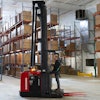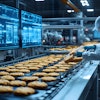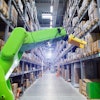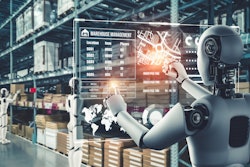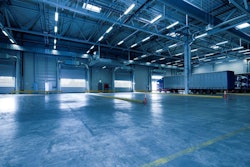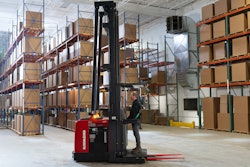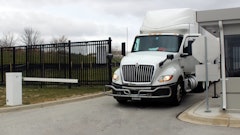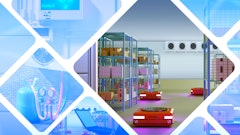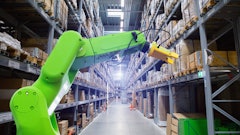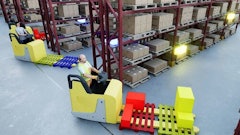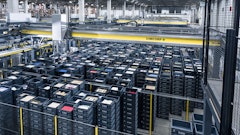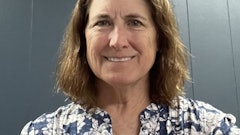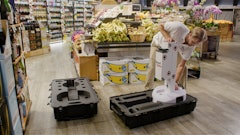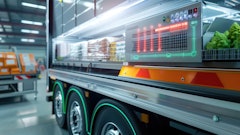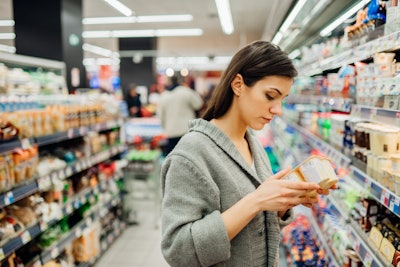
Co-oportunity Market—the oldest co-op in Los Angeles and the only organic food cooperative in town—has seen all sorts of challenges since its founding in 1974. It’s weathered recessions, changing consumer tastes and everything else that nearly five decades can throw at an organization, and never wavered from its commitment to responsible sourcing to help build a strong, local food system.
But the recent supply chain and labor crises have brought retailers to their knees nationwide.
“I’ve worked for the Co-op for over 28 years, and it’s never been more challenging,” says Co-opportunity Market’s general manager Aung Min.
In 2022, any opportunity to curb food waste and stretch operational budgets is one that grocers welcome with open arms–especially co-ops, who have additional operational challenges and constraints that larger chains might not. Democratizing access to fresh and sustainable food isn’t an easy task, but the Co-op has never shied away from a difficult path ahead; some data heavy-lifting wouldn’t be a problem.
Co-opportunity Market entered into a partnership with Focal Systems to utilize its shelf cameras and “self-driving store” operating system, FocalOS. The cameras scan all in-store inventory within every hour, monitoring what’s in stock, what’s running low and what needs to be replenished—a deep-learning computer vision model that was trained on over 1.4 billion labeled images is able to distinguish the products on the shelf and identify when a supply is dwindling.
This has obvious benefits for customers—making sure they can easily and reliably find the food items and products they are seeking and assuring that products that are near or at expiration are removed from shelves before a customer can attempt to purchase them. But the benefits behind the scenes for the Co-op are many.
Sustainability and environmental responsibility have always been a guiding principle for the Co-op; their efforts in this area speak volumes about their commitment. In 1999, it was the first grocery store on the West Side to install a photovoltaic solar array on the store’s roof. The Co-op is a Santa Monica, Calif.-certified Green Business, adheres to extensive responsible sourcing and buying practices and 1% of coffee sales go to Heal the Bay, a non-profit organization focused on protecting the coastal waters and watersheds of southern California.
The addition of this AI-powered inventory management system is just the latest in a long line of examples of the Co-opportunity Marketplace walking the walk, not just talking the talk, when it comes to sustainability. The Co-op’s new AI system can automatically handle ordering and order-writing to prevent mistaken orders or over-ordering—the team knows how much is on the shelf and on-hand in storage and can order the right amount to minimize waste.
With the labor crunch of today’s market in full force, this automated system helps the Co-op’s employees be more efficient. They have a clear picture of what news to be restocked and by how much.
What might be expected to be a cumbersome and lengthy process to overhaul inventory management systems only took a few hours to install and train the stores, since it didn’t need to be built on top of previous technology—what Focal calls “zero integration” installation. Retailers' tech stacks are in dire need of a refresh. Decades upon decades of "sandcastle building," plopping another solution on top of an old, legacy system, which was plopped onto an even older, legacy system. It’s going to topple over.
Most of the cost of any tech solution retailers invest into will go into the integration cost, not the actual technology. FocalOS can be used right out of the box, making it faster to implement and able to integrate with other systems. Now, through the cloud-based and AI-powered inventory system, waste and lost sales are both prevented by making sure food items are on the shelves, ready to be sold instead of sitting in a back room, approaching their expiration dates.
“We need data and technology to help us strategize and make smart inventory decisions,” Min says.
As today’s grocery marketplace has grown more complex, competitive and streamlined over the recent years, the edge that AI can give Co-opportunity Marketplace over its highly capitalized grocery competitors is valuable and will only help serve its mission to benefit the community, local farming partners and the environment as a whole through sustainability initiatives and measures.
